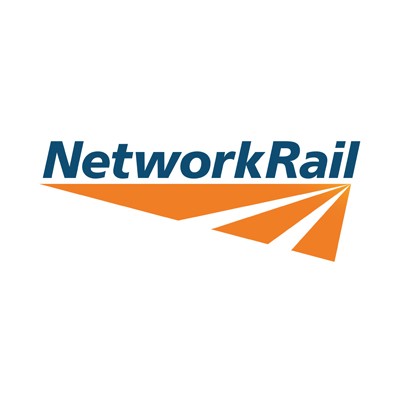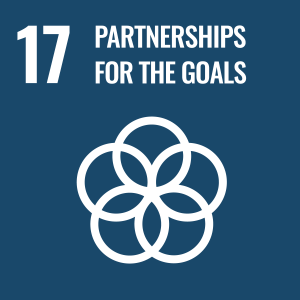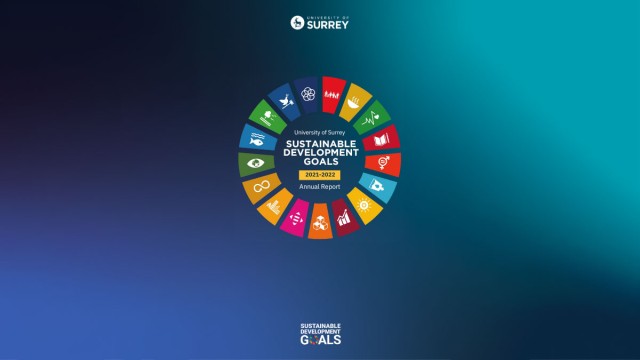Windsor Station surveys inform strategic plan for future train travel
Led by Dr Nikolas Thomopoulos, findings from this project will inform the design of a bespoke Strategic Station Plan tested at Windsor & Eton Riverside and Windsor Central Stations in collaboration with South Western Railway (SWR) and Great Western Railway (GWR) to be considered for wider application by Network Rail. The project aligns with the UN Sustainable Development Goals including SDG11 and SDG17.

Led by Dr Nikolas Thomopoulos, academic experts from the Sustainable Transport and Mobility programme of the Institute for Sustainability at the University of Surrey worked to design, administer, and analyse a station user survey and produce a report for Network Rail. The findings of this project will inform the design of a bespoke Strategic Station Plan, tested at Windsor & Eton Riverside and Windsor Central rail stations which could provide a blueprint for future application across the rail network.
Network Rail manages the infrastructure of most of the railway network in the UK. The role of Network Rail is to run safe, reliable, and efficient railway services to customers and communities, building on the organisational purpose to get people and goods where they need to be, and to support the UK economy. Great British Rail will be celebrating 200 years of operations in 2025.
The challenge
Network Rail has been developing a Strategic Station Plan (SSP) to improve the railway infrastructure and services at Windsor rail stations. Up until now, they have been actively engaging with the relevant stakeholders to incorporate their input into the future SSP. But what was missing was the voices of passengers, namely commuters and tourists, who use the two Windsor rail stations for travel.
Approach from the Institute for Sustainability
The Institute for Sustainability facilitates collaborations between academic experts and organisations. The Sustainability Innovation Hub within the Institute provides expert voices from its Fellows to nurture ideas, encourages collaboration, and supports organisations in the adoption of sustainable practices, products, or services.
To support Network Rail with their challenge, Institute Fellows from the Faculty of Engineering and Physical Sciences and the Faculty of Arts, Business and Social Sciences came together to shed light on the experiences of train passengers travelling to and from Windsor. With his expertise in sustainable transport and international experience based on collaborative projects on transport evaluation, Dr Nikolas Thomopoulos led the project in understanding the user perspective at Windsor & Eton Riverside and Windsor Central rail stations. Dr Alex Hagen-Zanker provided support by contributing to the geo-spatial analysis and map creation and Dr Gopinath Kalaiarasan assisted with the survey distribution. Astha Guragain contributed with survey distribution, data analysis, and report writing.
Project method
The information collected through the survey includes details about current travel, future station preferences, and socio-demographics. Future station preferences focused on four categories to meet Network Rail requirements, including preferences about active travel, EV charging, public transport, and station facilities. Three team members distributed the survey at Windsor & Eton Riverside and Windsor Central rail stations over five days in February-March 2024. The socio-demographic range of the survey participants was well-balanced to represent passengers’ voices. Respondents were aged between 18 and 82 years old, and the gender balance was good. The purpose of the journey included comparable ratios of commuters and tourists. Tourists came from both the UK and overseas, and tourists from overseas travelled from 20 countries to visit Windsor. Over 500 responses were collected through this survey, and 420 fully completed responses by those aged 18 or over were included in the analysis.
Findings
Findings from the survey responses revealed meaningful information as to how the passengers use the train services and what they demand in terms of facilities and service. The outcomes of this project will be used as Windsor SSP input, supporting Network Rail to develop the SSP in a holistic sense.
The survey design, based on academic input by the University of Surrey, will inform Network Rail and stakeholders in the development of strategic advice seeking to influence potential enhancements to the experience of station users. Survey outputs have proven a useful source of primary evidence. I am particularly impressed by the trip-chaining diagram based on Saud and Thomopoulos (2021) which really tells the story of a passenger’s journey.Joe Parkes, Senior Strategic Planner – Wessex, Network Rail.
Overall, the findings within the University of Surrey’s report clearly evidence the previous assumption that many users of Windsor’s stations are tourists or one-off visitors. Understanding how these irregular users of rail access the mode and purchase their tickets was particularly insightful. These and wider survey findings will be used by Network Rail’s Strategic Planning team to inform further consultation with the local authority and other stakeholders on the emerging Windsor Stations Strategic Station Plan. We are grateful to the team for their time and expertise.
Impact
This project encompasses multi-actor engagement at the heart of interdisciplinary research and innovation. In addition, it builds partnerships at the local and national levels to deliver societal benefits and mobilises networks of stakeholders to provide input into the development and testing of complex interventions across a sustainable public transport system.
Network Rail benefits through this project by gaining valuable input for developing the Windsor SSP in a holistic way by focusing on both current and future travel. South Western Railway (SWR) and Great Western Railway (GWR) will benefit from the travel pattern analysis offered through this project report, which will create an impact by offering insights on user demand. By allowing to understand passenger preferences and by informing future capacity requirements, project outputs are also useful for the next stages of the Windsor SSP, which include a wide range of stakeholders including the Local Council for the Royal Borough of Windsor and Maidenhead. With the comprehensive incorporation of diverse stakeholder perspectives, the future implementation of the SSP in Windsor is more likely to benefit users directly based on demand patterns of the users of rail station and train services. Outputs outlined in the summary report can be used by wider stakeholders to inform discussions and plans in Windsor or elsewhere in the UK.
Sustainable Development Goals
This project aligns with the UN Sustainable Development Goals SDG11 (sustainable cities and communities) and SDG17 (partnerships for the goals). The purpose of this project aligns with SDG11, as building efficient public transport networks and services is an essential part of sustainable cities and communities. It serves a significant role in sustainable tourist destination management as well. The project also aligns with SDG17 as the project was a collaboration between Network Rail and the Institute for Sustainability to investigate user preferences of the general public around their railway experience and incorporate the findings into future planning, for the goal to bring societal benefits through the improvement of the public transport services and infrastructure.
Working together to bring as many stakeholder views together is vital for developing a railway that is attractive to customers now and in the future. Creating and promoting sustainable transport modes is hugely significant to the path to Net Zero. We’re pleased to see such collaborative efforts here at both Windsor stations to gather the data and conclusions to inform future decision-making.Eleanor Wills, Regional Development Manager (East) – GWR
The report by the University of Surrey has provided useful insight into the way in which SWR customers use Windsor & Eton Riverside station, and its analysis will help us inform both future capacity requirements and travel patterns.David Wilby, Regional Development Manager – SWR
Contributors
- Dr Nikolas Thomopoulos, Co-Lead of the Sustainable Transport and Mobility programme at the Institute for Sustainability and Associate Professor in Transport, University of Surrey
- Dr Alex Hagen-Zanker, Associate Professor in Infrastructure Systems, University of Surrey
- Dr Gopinath Kalaiarasan, Research Fellow, Institute for Sustainability, University of Surrey
- Astha Guragain, Research Assistant, University of Surrey
- Nathalie Hinds, Director of Operations, Innovation and Partnerships, Institute for Sustainability, University of Surrey
- Catherine Cole, Innovation Lead, Sustainability Innovation Hub, Institute for Sustainability, University of Surrey
- Haeyoung Eun, Innovation Lead, Sustainability Innovation Hub, Institute for Sustainability, University of Surrey
- Network Rail
- Sustainable Transport and Mobility programme, Institute for Sustainability.
Related sustainable development goals







